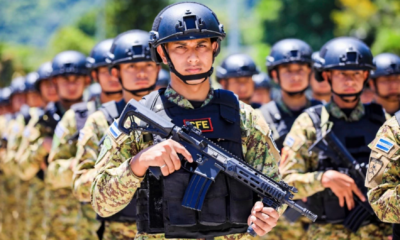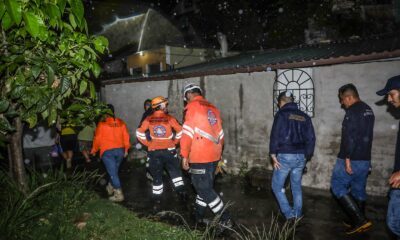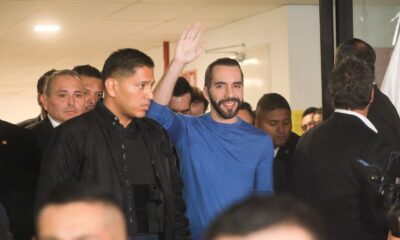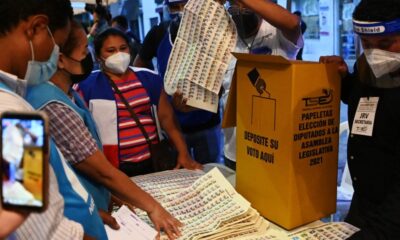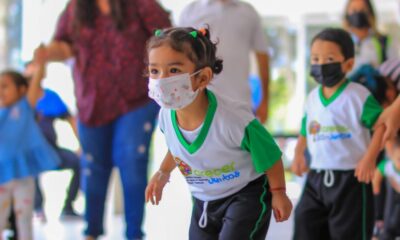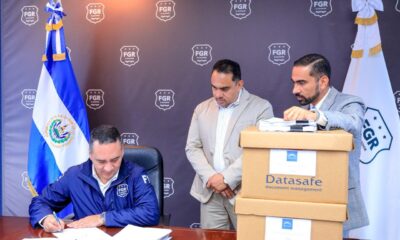Central America
“I hope to leave an irreversible path for the development of El Salvador”: President Nayib Bukele
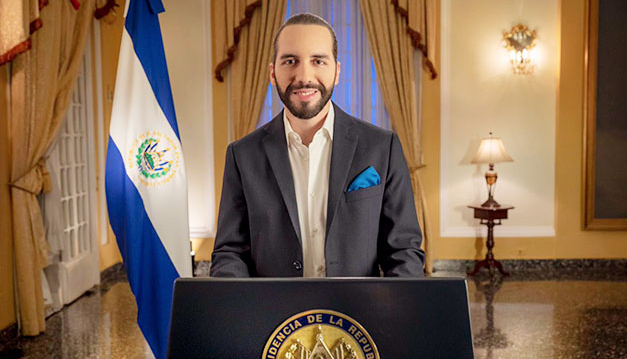
The political opposition attempts to halt the changes and transformations driven by the Executive, while organizations and the international community try to prevent sovereign decision-making, stated President Nayib Bukele in an open conversation on Space.
The President of the Republic, Nayib Bukele, expressed yesterday that, as a leader, his desire is not only to achieve the full development of El Salvador but also to pave the way for progress and prosperity that is irreversible, preventing the political opposition from undoing the achievements.
“I want to see a developed country, developed in the right way, and that we can be an example to the world,” said the president in the conversation held last night with thousands of people from the Latin American region who connected to the Space event through the X social network.
He reiterated that the Salvadoran political opposition could roll back the advances made by the current government if they return to power.
On February 4, presidential and legislative elections will be held in El Salvador, and voters will decide at the polls whether the political opposition (led by ARENA and FMLN) will regain power or if Nayib Bukele will be re-elected.
“I want El Salvador to be an example for the rest of the world. What I hope at the end of my term is to leave an irreversible path for El Salvador in its development, and there should be no way to return to the past,” reaffirmed the leader in the conversation, where participants were free to ask questions on various national and regional current affairs.
He pointed out that it has not been easy to drive changes and social transformations in El Salvador, especially due to the resistance encountered at the national level with the political opposition and at the international level with countries and organizations that try to influence politics and sovereign decisions.
In that sense, he specified that there are international organizations that fund individuals and media to influence political power directly or indirectly, promoting “harmful” agendas for countries like El Salvador, which seeks to overcome underdevelopment.
“They basically promote an agenda harmful to the world. Our countries are not only held hostage by their local problems but also by an international elite financed by people like George Soros, from the Open Society Foundation. There are more [people] promoting a civilizational destruction agenda with the aim of making money, as every world crisis is a business for them,” said Bukele.
He added that these organizations handle immense amounts of money and power, although their leaders have never been elected by populations. “There is a cohort of journalists, lawyers following this agenda. One of their fundamental pillars is these [media] outlets,” he said.
He argued that various bodies, such as the United Nations, the Inter-American Commission on Human Rights (CIDH), among others, also oppose poor nations developing their own agendas, contrary to the goals they claim to work towards.
For example, once the state of exception was implemented in March 2022, as a constitutional measure that strengthened the execution of the Territorial Control Plan, international organizations began criticizing, demanding an end to the implementation.
Likewise, when removing judges, politicians, and amending laws to eliminate conditions that fostered violence, international powers demanded a return to the previous “status quo,” even though our country was the most insecure in the world.
“Their argument was institutionality, the rule of law. What rule of law were they talking about? They simply protested, almost demanded, and required us to return to how the country was. Thank God our country is different now, and it was largely because we did not heed what these types of organizations and the international community were saying, which have never looked out for us,” he stated.
According to the president, the real goal of opposing historic changes is for populations in other countries to follow the example and replace the current politicians, as happened in El Salvador with the traditional parties ARENA and FMLN.
Central America
Guatemala President Says Starlink Terminal Found Inside Prison

Guatemalan President Bernardo Arévalo revealed on Tuesday that a Starlink terminal was discovered inside a prison in the country, highlighting corruption and the illegal introduction of advanced communication technology into the penitentiary system.
Arévalo did not specify which prison the device was found in but stressed that Starlink’s ability to connect directly to low-orbit satellites makes it particularly difficult to disrupt, posing a serious security risk.
The disclosure was made during a press conference attended by Interior Minister Marco Antonio Villeda and Defense Minister Henry Sáenz.
On January 6, specialized units of Guatemala’s National Civil Police (PNC), members of the Army and prison security personnel carried out Operation Sentinel at the Renovación 1 Maximum Security Prison for Men, located in Escuintla. According to the Interior Ministry, the operation aimed to reduce criminal activity, prevent illicit acts and stop the trafficking of prohibited items inside the prison.
During the operation, authorities also dismantled businesses operating near several prisons after detecting routers that were allegedly used to redirect internet signals into penitentiary facilities, according to local outlet Emisoras Unidas.
Tensions escalated further over the weekend of January 17 and 18, when inmates affiliated with gangs staged riots in three prisons. During the unrest, they took prison guards and a psychologist hostage, demanding extra-large beds, air conditioning, transfers to other facilities and access to the internet.
Central America
Guatemala Police Arrest Prison Guard Caught in the Act of Extortion
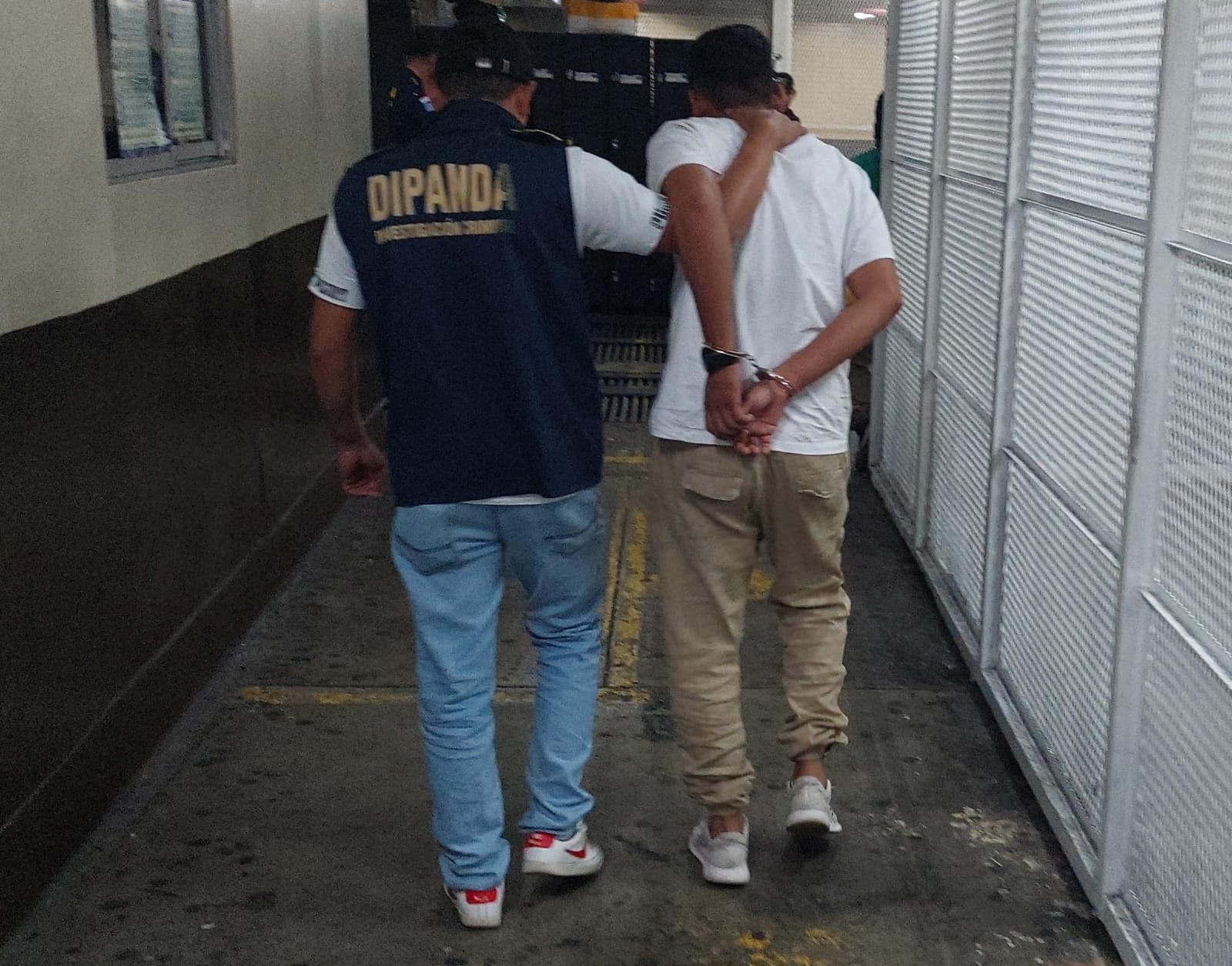
Guatemala’s National Civil Police (PNC) arrested a suspected extortionist in the act during an operation carried out in the department of Quiché, authorities reported.
According to the police report, the arrest took place in Zone 1 of Santa Cruz del Quiché after officers responded to a citizen complaint. Agents from Precinct 71 identified the suspect as Encarnación “N”, 41, who was serving as a guard in the Guatemalan Penitentiary System.
The suspect was caught while attempting to collect a package simulating an extortion payment totaling 25,000 quetzales. Police intervened at the precise moment the money was being handed over, allowing authorities to document the crime in flagrante delicto.
Following the operation, the detainee was placed at the disposal of the competent courts to face criminal proceedings.
The PNC emphasized that such operations aim to dismantle criminal structures involved in extortion, regardless of whether those implicated are linked to state institutions, and urged the public to continue reporting these crimes through confidential channels.
Central America
Honduras swears in conservative president Asfura after disputed election

Conservative politician Nasry Asfura assumed the presidency of Honduras on Tuesday with an agenda closely aligned with the United States, a shift that could strain the country’s relationship with China as he seeks to confront the economic and security challenges facing the poorest and most violent nation in Central America.
Asfura’s rise to power, backed by U.S. President Donald Trump, marks the end of four years of left-wing rule and secures Trump another regional ally amid the advance of conservative governments in Chile, Bolivia, Peru, and Argentina.
The 67-year-old former mayor and construction businessman was sworn in during an austere ceremony at the National Congress, following a tightly contested election marred by opposition allegations of fraud and Trump’s threat to cut U.S. aid if his preferred candidate did not prevail.
Grateful for Washington’s support, Asfura—who is of Palestinian descent—traveled to the United States to meet with Secretary of State Marco Rubio, before visiting Israeli Prime Minister Benjamin Netanyahu.
“We need to strengthen relations with our most important trading partner,” Asfura said after being declared the winner of the November 30 election by a narrow margin, following a tense vote count that lasted just over three weeks.
-

 Central America3 days ago
Central America3 days agoGuatemala seizes over a ton of cocaine hidden in flour at Pacific port
-

 International5 days ago
International5 days agoDelcy Rodríguez seeks political agreements after Maduro’s ouster
-

 International3 days ago
International3 days agoHistoric snowstorm paralyzes Toronto after 60 centimeters of snow
-

 Central America2 days ago
Central America2 days agoGuatemala Police Arrest Prison Guard Caught in the Act of Extortion
-

 International3 days ago
International3 days agoSpain’s irregular migrant population rises to 840,000, study finds
-

 Central America2 days ago
Central America2 days agoBukele leads public trust rankings as UCA survey highlights gains in security
-

 Central America2 days ago
Central America2 days agoHonduras swears in conservative president Asfura after disputed election
-

 International5 days ago
International5 days agoFederal immigration agents kill man in Minneapolis, sparking protests and outrage
-

 International1 day ago
International1 day agoFootball Fan Killed in Clashes After Colombian League Match
-

 International2 days ago
International2 days agoWinter Storm Fern Leaves 30 Dead and Over One Million Without Power Across the U.S.
-

 Central America1 day ago
Central America1 day agoGuatemala President Says Starlink Terminal Found Inside Prison
-

 Sin categoría2 days ago
Sin categoría2 days agoEight Killed in Series of Armed Attacks in Ecuador’s Manabí Province
-

 International2 days ago
International2 days agoDoomsday clock moves to 85 seconds before midnight amid rising global risks
-

 International3 days ago
International3 days agoRights group says nearly 6,000 killed in Iran protest crackdown
-

 International1 day ago
International1 day agoMissing Spanish Sailor Rescued After 11 Days Adrift in Mediterranean
-

 International1 day ago
International1 day agoRubio Says U.S. Could Participate in Follow-Up Russia-Ukraine Talks
-

 International2 days ago
International2 days agoSpain approves plan to regularize up to 500,000 migrants in Historic Shift
-

 Sin categoría2 days ago
Sin categoría2 days agoEl Salvador Launches Fourth Year of Ocean Mission to Protect Marine Ecosystems
-

 International3 days ago
International3 days agoVenezuela frees at least 80 political prisoners, NGO says
-

 International3 days ago
International3 days agoEU launches new probe into X over AI-generated fake nude images
-

 International6 hours ago
International6 hours agoU.S. Senate Rejects Budget, Bringing Government Closer to Shutdown Amid DHS Dispute
-

 International3 days ago
International3 days agoFrance debates ban on social media for children under 15
-

 International3 days ago
International3 days agoSevere winter storm grips U.S., leaves multiple dead as extreme cold persists
-

 International6 hours ago
International6 hours agoStorm Kristin Kills Five in Portugal, Leaves Nearly 500,000 Without Power
-

 International6 hours ago
International6 hours agoTrump Says Putin Agreed to One-Week Halt in Attacks on Ukraine Amid Extreme Cold
-

 International6 hours ago
International6 hours agoMan Arrested After Vehicle Crashes Into Jewish Institution in Brooklyn

















































































